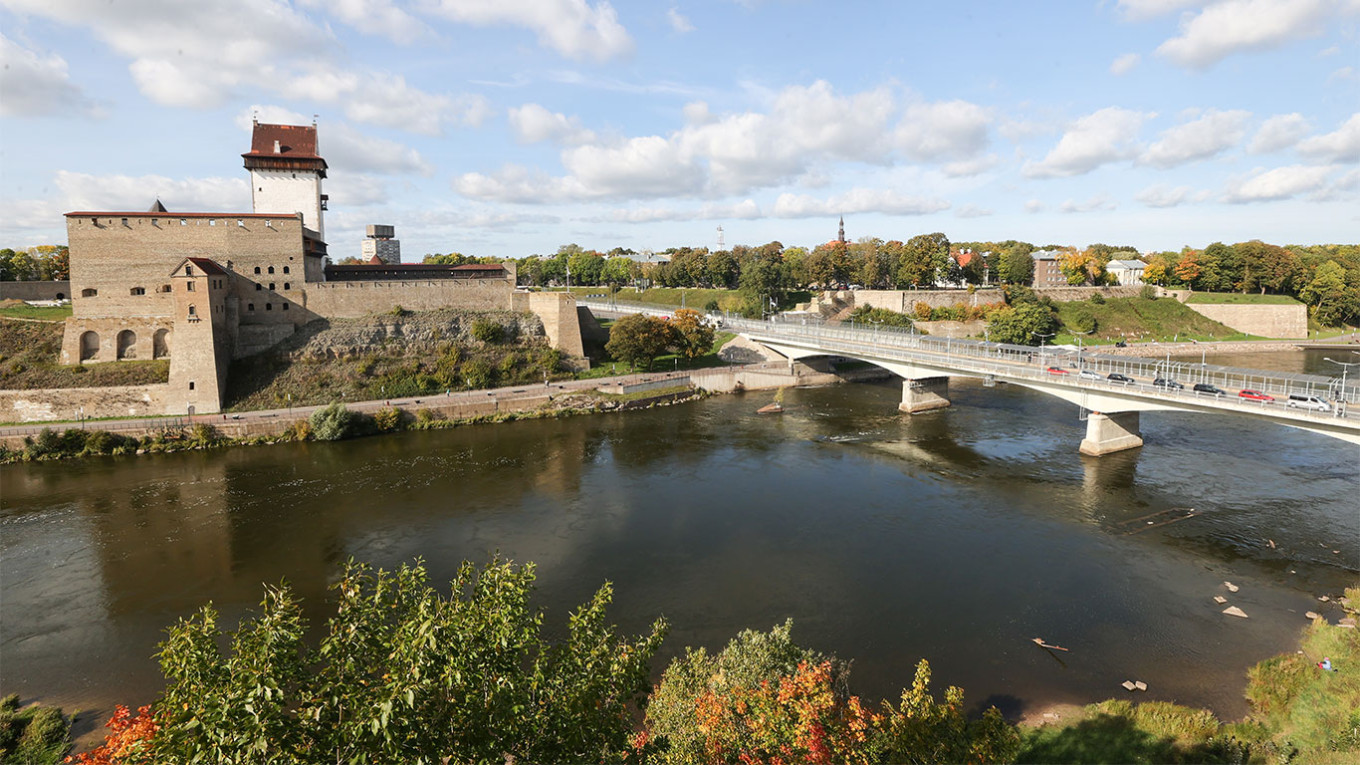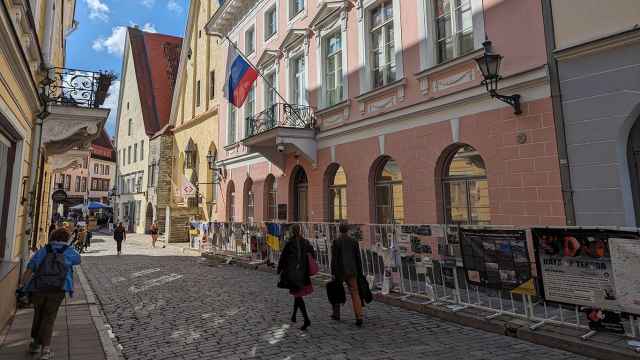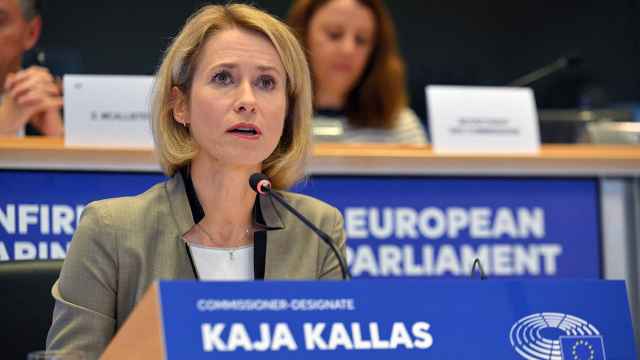Estonia's border guards on Thursday said their Russian counterparts had removed buoys overnight from the Narva River, which separates the two neighboring countries, amid a dispute over the shared border.
Tallinn said it was only since the full-scale invasion of Ukraine that Moscow has contested the placement of the floating markers used to prevent boats from accidentally straying into foreign waters.
"This year, Russia announced that they would not agree with the locations of about half of the planned" buoys, Estonia's border guard service said in a statement.
Early Thursday morning, Estonian "border guards detected that the border guards of the Russian Federation had begun to remove floating markers," it added.
Estonian Prime Minister Kaja Kallas told reporters that her government was "clarifying" the circumstances of the buoy removal with authorities in Moscow.
She added that "Russia uses tools related to the border to create fear and anxiety, with which to sow insecurity in our societies. We see a broader pattern of this."
The incident comes two days after the Russian government published a draft resolution introduced by the Russian Defense Ministry that would seek to redefine the country's maritime borders around the Baltic exclave of Kaliningrad and the eastern part of the Gulf of Finland.
The proposal, which has since been removed from the government's website, elicited outrage from Russia's Baltic Sea neighbors, who called it an attempt to sow confusion and destabilize regional security.
While the Kremlin insisted Wednesday that the draft resolution was not politically motivated, experts believe the proposed changes could be used to put pressure on Russia’s Baltic Sea neighbors — all of whom are EU and NATO members.
AFP contributed reporting.
A Message from The Moscow Times:
Dear readers,
We are facing unprecedented challenges. Russia's Prosecutor General's Office has designated The Moscow Times as an "undesirable" organization, criminalizing our work and putting our staff at risk of prosecution. This follows our earlier unjust labeling as a "foreign agent."
These actions are direct attempts to silence independent journalism in Russia. The authorities claim our work "discredits the decisions of the Russian leadership." We see things differently: we strive to provide accurate, unbiased reporting on Russia.
We, the journalists of The Moscow Times, refuse to be silenced. But to continue our work, we need your help.
Your support, no matter how small, makes a world of difference. If you can, please support us monthly starting from just $2. It's quick to set up, and every contribution makes a significant impact.
By supporting The Moscow Times, you're defending open, independent journalism in the face of repression. Thank you for standing with us.
Remind me later.






